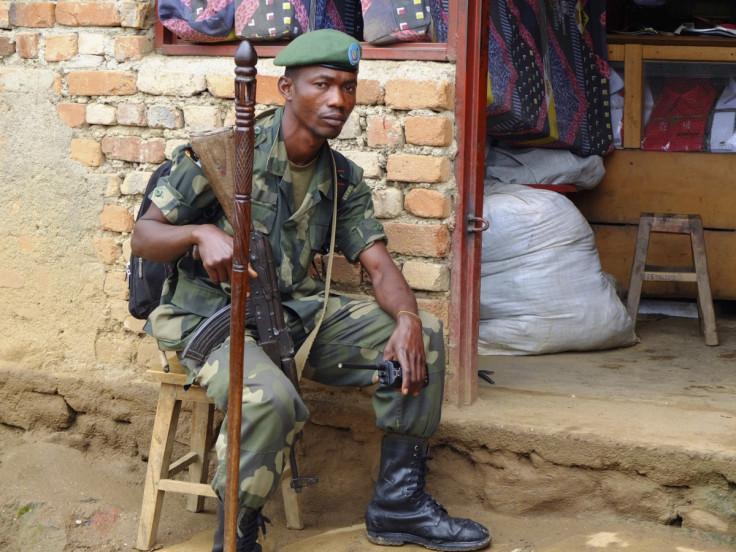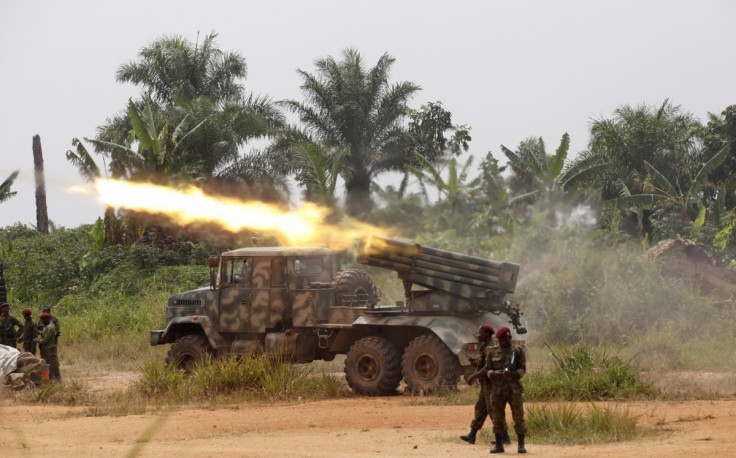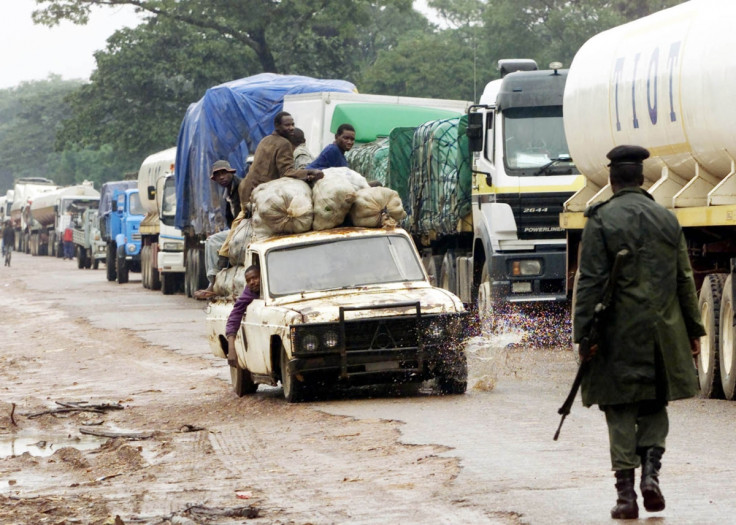DRC: Army officers and ADF rebels killed amid surge in fighting in North Kivu

Violent clashes between the Congolese army and rebels in the Democratic Republic of the Congo (DRC)'s eastern provinces left six dead on Wednesday (28 October). The battle for control in DRC is coming to a head as the country prepares for a presidential vote in late 2016. Political stability has created a window of opportunity for positive change to arise, but significant obstacles to the nation's transition to stability and democracy still remain in the form of more than 50 different armed groups clashing with the Congolese forces in DRC's eastern borderlands.
The national army, the Forces Armées de la République du Congo (FARDC) announced two of its soldiers and four Ugandan rebels of the Allied Democratic Forces (ADF) were killed in the Beni territory, after three days of fighting.
Since October last year, the Beni territory of North Kivu has been an arena of attacks and massacres attributed to the ADF-NALU, a western Ugandan-led Islamist armed group that has been active in North Kivu's Beni territory since 1996. It is one of the oldest in eastern DRC, but it is also one of the most mysterious.
UN peacekeeping mission on 'maximum alert'
The death toll was revealed by Lieutenant Mak Hazukay, spokesperson for the Operation Sokola (the Lingala word for "clean"), an offensive launched in January 2014 by the FARDC, with support from UN's Organization Stabilization Mission in the Democratic Republic of the Congo (MONUSCO) against the ADF-NALU militias.
MONUSCO said the rebels had been killed by the army "during an attack against a FARDC command post" in Beni.
The UN peacekeeping mission in DRC, which is currently leading "military activities...in coordination with the Congolese army" against the rebels, said it was authorised to resort to the use of force in an offensive capacity to neutralise the rebels in DRC's unstable eastern region.
The UN's 3,000 troops currently in Beni have been "placed on maximum alert", according to MONUSCO.

Rise in police harassment in Katanga
Meanwhile, local sources have pointed to a surge in incidents of police harassment in DRC's most stable and mineral-rich province, Katanga.
"After the resignation of Governor Moïse Katumbi, police harassment has increased in Lubumbashi," a member of the civil society told the weekly French new magazine Jeune Afrique.
The governor of south-eastern Katanga province resigned from the country's ruling faction, the People's Party for Reconstruction and Democracy (PPRD) in September. Once a staunch supporter of President Joseph Kabila, Katumbi – who is a favourite to replace Kabila – he broke his silence and criticised the leader for recent attempts to prolong his tenure into a third term, a move that has sparked violence and rising political tensions ahead of the country's elections in November 2016.
On Wednesday (28 October), it was reported that a taxi driver set himself on fire in Katanga after becoming tired of police harassment in Lubumbashi, Katanga's regional capital and DRC's second largest city. The taxi driver was arrested by a policeman in charge of the circulation, who allegedly asked him for bribes, several sources told local media. The police then boarded the vehicle to force the driver to go to the police station in Lubumbashi.
Tired by the harassment, the driver doused himself in gasoline before setting his body on fire, clinging to the policeman. The taxi driver was taken to a hospital in Lubumbashi with third-degree burns.
"We are daily victims of police harassment ," he explained to the local press in his hospital bed. "When [the police] arrested me, there were people watching us," added the economics graduate who became a taxi driver to "guarantee the survival of [his] children".
When the officer got into his vehicle, the driver says he warned the officer he was ready to die with him if he did not let him do his job.

"Do you want me to help you ?" the policeman reportedly told the driver, before handing him a lighter.
"I took [the lighter] and doused myself with gasoline. When I turned the lighter on, he understood I was serious. He wanted to run away, but I held (onto him)."
The policeman's condition is not life-threatening, sources told local media.
Battle for control of the DRC
Check out our Flipboard magazine - Who's who in the battle for DRC by IBTimes UK
In this series on the Democratic Republic of the Congo, IBTimes UK takes a closer look at the eastern regions of South and North Kivu where civilians are still at the mercy of armed groups and the Congolese armed forces, who have all been accused of committing serious war crimes.
© Copyright IBTimes 2025. All rights reserved.






















